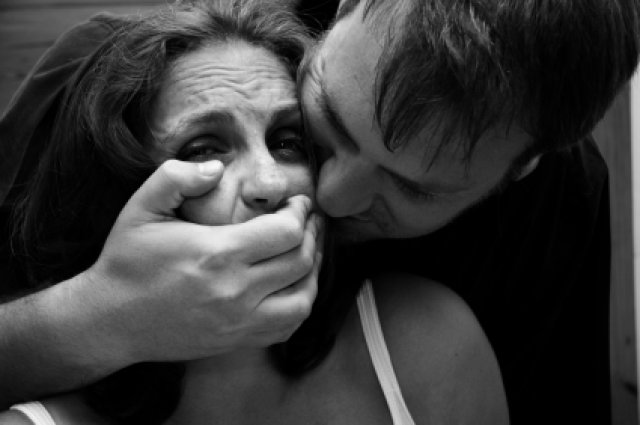
It would be a sick joke, if it weren't actually true. On April 30, a 23-year-old Sydney man was acquitted of rape because the jury decided he couldn't have ripped off a young woman's skinny jeans without “any sort of collaboration”, the May 1 Sydney Morning Herald said.
The woman, who weighed only 42 kilograms, told the court he had pushed her onto his bed, placed his own weight onto her and then raped her. The defence counsel put it to her on the witness stand: “I’m suggesting it’s difficult for skinny jeans to be taken off by someone else unless the wearer’s assisting, collaborating, consenting”, he said. “I would disagree”, she said.
This “skinny jeans defence” has cropped up in other countries as well, and is another example of using what a woman wears to explain away violent assault. Blame the victim; excuse the perpetrator.
This appalling case profoundly misunderstands the nature of rape and its prevalence in society. And unfortunately, the attitudes of the jury are not exceptional.
Despite decades of effort to slam myths and educate people about the facts of rape, recent studies have shown shocking that many Australians support excuses for sexual assault, violence, abuse and rape.
The Victorian Health Promotion Foundation (VicHealth) found one in four Australians believe that women falsify or exaggerate claims of rape and domestic violence.
A third believed the ancient myth that men rape because they can't “control their need for sex”, rather than for reasons of power or control.
The statistics included women. Equal numbers of women and men believed a man is less responsible for rape if he is drunk or affected by drugs at the time (7%), but an intoxicated woman is at least partially responsible (16%).
Other studies indicate that many people believe sometimes women have to admit "some responsibility", particularly when dressing or acting a certain way. VicHealth also found women are more likely to blame themselves.
US singer Kiely Williams' recent video clip “Spectacular” gives the consequences of these statistics and beliefs shocking clarity. The clip portrays her drunken night out ending in sex she does not remember.
According to the song, whether she consented or not is not the issue. The song implies drinking alcohol, flirting with a man, dressing provocatively and, in effect, “asking for it” are reasonable excuses to dismiss the culpability of the act.
Rape is not sex and sex is not rape. If a woman did not consent to sex, in any circumstances, then it was rape. Consent does not simply mean the absence of “no”. Is it “reasonable” to assume that silence means sexual consent? What if silence was due to the fact that the woman was totally intoxicated?
Did a woman consent to group sex with 12 football players when they were all twice her size and blocking the exit to the room?
A mugger targets a man in the street, because he is wearing an expensive business suit and has been drinking. Was the victim asking for it to happen? Isn't he responsible, at least “partially responsible”, for being bashed and robbed? No one asks to be assaulted.
It is completely unjust that the burden of proof in cases of rape is on the woman to prove she did not give consent. It ignores the psychological trauma that accompanies abuse. It ignores the way society trains women to put self-respect, health and safety second to the way others see them.
Domestic violence also remains misunderstood. VicHealth found 25% did not believe domestic violence included “controlling a partner by denying them money”, and 15% felt the same about “controlling the social life of a partner by preventing them from seeing friends or family”. Twenty percent did not think “yelling abuse at a partner” was serious at all.
A 2003 report by the United Nations Development Fund for Women (UNIFEM) showed one in three women around the world will be raped, beaten, coerced into sex or otherwise abused in her lifetime. Violence against women is worse in Third World countries and in areas where poverty is prevalent, but it affects all layers of society. Yet the NSW Rape Crisis Centre says only 15% of those who are sexually assaulted will report it to the police.
Sexual violence rarely makes it to court. When it does, brutal and rigorous examination is directed at the victim of rape, and rarely the rapist. Support for a woman coming forward when she is assaulted is almost non-existent. She must be prepared to have everything scrutinised, from her sex life to her wardrobe, from how much she drank to the way she acted.
Violence against women is a consequence of gender roles that put women second. Women are not even allowed control of their bodies, denied the right to abortion, relegated to be wives and mothers, and subjected to the unattainable “beauty myth”.
Myths about rape help gender oppression in society continue. Sexual violence is a tool that perpetuates powerlessness. Women are violated in the act, as well as in the aftermath, through the legal system and — as statistics, pop and sport culture, and the countless horror stories we hear in the media show — in the pervasive and perverse attitudes of many in society.
Women should be free from all violence; free to go where they like, act and dress how they like, have sex with whomever they like; and not need to fear rape, assault or abuse. Women and men who believe this must be louder than the voices that condone rapists and excuse violence against women.
That's why Resistance is a feminist organisation, committed to working to end this appalling symptom of an oppressive society, and fighting for the total liberation of women.